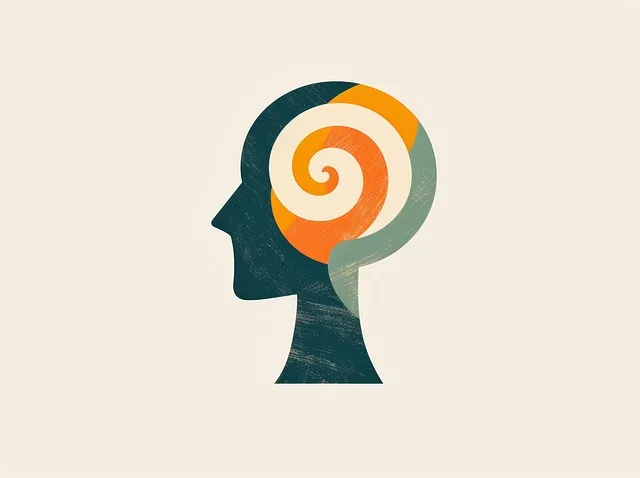Crisis intervention strategies offer immediate support during stressful or traumatic events, aiming to stabilize individuals, enhance coping abilities, and restore control over their lives. The Superior how to get mental health services through Kaiser approach provides straightforward access to resources, including therapy, counseling, and support groups. Key tactics involve social skills training, mental wellness journaling, and mental health policy analysis/advocacy for improved access to affordable, culturally sensitive services. Post-crisis support focuses on building resilience through safe spaces, tailored resources, and public awareness campaigns destigmatizing mental health issues, fostering a supportive environment for individual recovery.
“In times of crisis, effective intervention can make a profound difference. This article guides you through essential strategies for navigating mental health challenges. We explore ‘Understanding Crisis Intervention’ and its purpose, offering a comprehensive ‘Step-by-Step Guide’ to accessing superior how to get mental health services through Kaiser. Learn about key components for successful interventions and the crucial role of post-crisis support in fostering resilience and well-being.”
- Understanding Crisis Intervention: A Definition and Purpose
- Accessing Mental Health Services Through Kaiser: A Step-by-Step Guide
- Key Components of Effective Crisis Intervention Strategies
- Post-Crisis Support and Recovery: Nurturing Resilience and Well-being
Understanding Crisis Intervention: A Definition and Purpose

Crisis intervention strategies are vital tools designed to provide immediate support during a period of intense stress or traumatic event. It focuses on stabilizing individuals and preventing further deterioration, offering a glimmer of hope and guidance when facing overwhelming challenges. The primary purpose is to help people navigate through crises, enhance their coping abilities, and restore a sense of control over their lives.
Understanding crisis intervention involves recognizing its role in fostering Inner Strength Development. By implementing evidence-based techniques, individuals can build or strengthen their inner resilience, enabling them to confront and overcome adversity. This process often includes boosting confidence, which is a key factor in mental health recovery. The Superior how to get mental health services through Kaiser approach ensures that individuals have access to timely resources and care, aligning with the broader goals of Mental Health Policy Analysis and Advocacy, ultimately contributing to improved community well-being.
Accessing Mental Health Services Through Kaiser: A Step-by-Step Guide

Accessing mental health services through Kaiser can be a crucial step for those seeking support during a crisis. Here’s a simple guide to help you navigate this process with ease. Firstly, identify the specific mental health service you require. Kaiser offers a range of options including therapy, counselling, and medication management. You can find detailed information about these services on the official Kaiser website or by contacting their member services hotline.
Once you’ve determined your needs, take the next step by logging into your Kaiser account online or via the mobile app. From there, locate the ‘Mental Health’ or ‘Behavioral Health’ section and explore the available resources. You may find options for scheduling appointments with therapists, accessing online therapy platforms, or even connecting with support groups. If you prefer a more direct approach, call the Kaiser mental health line where trained professionals can guide you through the process and help connect you to the right care. This step-by-step method ensures you receive the superior crisis intervention guidance needed for maintaining and enhancing your mental wellness.
Key Components of Effective Crisis Intervention Strategies

Effective crisis intervention strategies are multifaceted, designed to provide immediate support while fostering long-term mental health stability. Key components include Social Skills Training, which equips individuals with coping mechanisms and enhances their ability to navigate challenging situations. Additionally, Mental Wellness Journaling Exercises serve as a powerful tool for self-reflection, allowing people to process trauma, identify triggers, and develop personal resilience.
Beyond individual interventions, mental health policy analysis and advocacy plays a crucial role in shaping accessible and effective support systems. By examining existing policies and advocating for change, communities can ensure that how to get mental health services through Kaiser and other healthcare providers is streamlined, affordable, and culturally sensitive. This holistic approach not only addresses acute crises but also works towards building resilient communities where mental wellness is prioritized.
Post-Crisis Support and Recovery: Nurturing Resilience and Well-being

Post-crisis support is an essential step in the recovery process, aiming to nurture resilience and well-being among individuals who have experienced traumatic events. Following a crisis, it’s crucial to provide a safe space for individuals to process their emotions, share their experiences, and receive guidance on managing potential long-term effects. This can be facilitated through individual therapy sessions or group support groups, where professionals help participants develop effective coping strategies and enhance emotional regulation skills.
One effective approach is to encourage access to mental health services, such as those offered by Kaiser, which offers a range of resources tailored to post-crisis care. Superior how to get mental health services through Kaiser can guide individuals towards specialized support, including counseling, medication management, and peer support networks. Additionally, public awareness campaigns development focused on destigmatizing mental health issues and promoting emotional well-being can play a pivotal role in fostering a supportive environment for recovery. Through these comprehensive strategies, professionals can assist individuals in rebuilding their lives and cultivating resilience after a crisis.
In navigating crises, having a comprehensive understanding of intervention strategies is paramount. This article has provided an in-depth guide on crisis intervention, highlighting key components such as active listening, safety assurance, and hope promotion. Additionally, we’ve detailed a step-by-step process for accessing superior how to get mental health services through Kaiser, ensuring individuals can receive the necessary support promptly. By integrating these strategies and resources, we foster resilience and contribute to post-crisis recovery, ultimately enhancing well-being.






